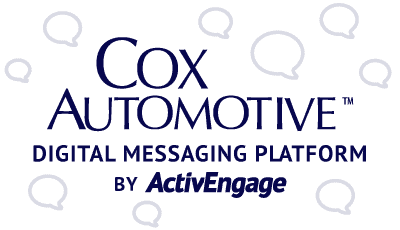Accountability in the workplace is the paramount method to success. In order to justify your decisions as an owner or manager of a dealership, you have to be able to show the reasons why you are doing something, and so do all of your employees.
If there is an action without a reason, there is no accountability for that action. In all departments of your dealership, actions occur every day that impact your business as a whole. You need to keep track of those actions and how they affect your success.
Ways to Be More Accountable
Set Goals
Goals should be made for all levels of the dealership. What are your Sales goals this month? How much do you expect to receive in return from your marketing efforts? What are your customer service standards that all employees should be following? Goals should be clearly defined and measurable, so that a record can be made to ensure all goals are being met.
Look at the Data
If you don’t know what your goals are or need a better way to understand what your goals should be, look at the data. If you have a way of measuring success and performance, you can easily see where any errors might be occurring, where improvements can be made, or how to excel better at what you are already doing.
One way to find those improvements is through measuring your ROI. You need to track each lead from its origination point to the end sale. Once you are tracking each of your lead sources and the results they provide, you can see which investments were most effective in making a sale and increasing your dealership’s success, and which were less effective in producing results.
Do you have data that can tell if your sales staff is performing at the level they should be? Do they have a sales quota to meet by the end of the month? Are they expected to follow up with customers who recently purchased? Are you keeping track of these expectations?
Discuss Your Expectations
Each position in the dealership has a role to play, and they have specific responsibilities that must be carried out for you all to be successful. You need to communicate your expectations with your employees and make sure they understand their role and what is expected of them to achieve the goals you have set for them.
At ActivEngage, our Chat Specialists go through a monthly check-in process to look at areas of improvement. The rep can then go about implementing the necessary changes throughout the next month, and see how their performance improves. A true professional admits their mistakes and weak areas, and seeks to correct them. We are all professionals, aren’t we?
Also, it is good to note that encouragement before criticism is always best. In those monthly meetings you should address not only what your employee needs improvement on, but you should also let them know what they are doing well. This enhances your employees drive for intrinsic incentives, which are their internal motivators for doing a better job, improving a skill, or making a customer’s experience even better with passion for the work they are performing.
How to Maintain Accountability
Incentives are what motivates people to be accountable and to sustain or improve performance. You can approach maintaining accountability by offering certain incentives for employees who are meeting the goals to keep them motivated. However, there are two different kinds of incentives:
Extrinsic Incentives:
- Fear of loss (e.g. - loss of a client, money, job, or a business)
- Hope of gain
- Rewards
- Recognition
Intrinsic Incentives:
- Improving Skills
- Personal Interest
- Enjoyment
Most people who are intrinsically motivated are usually already accountable, because they love what they do and are interested in making their work better. Employees may need extrinsic incentives if they do not have an internal motivation to do well, or if they feel they need some kind of reward to demonstrate and accentuate that their performance is worthy of attention and praise by others.
Accountability Builds Trust
When you create an environment of accountability, where your employees know what you expect and they understand how their work affects the dealership’s success, you build a mutual trust between the manager and the employee to ensure that work is done, and done appropriately. You’ll be able to hold your employees responsible for the work that they do, and they can also give you feedback on what they think is no longer working on the manager’s end.
Everyone is accountable to something. Even an owner of a dealership is accountable to that dealership’s success and for providing the tools to the managers and other employees to perform their jobs in a way that improves the business as a whole. It should be a collective decision to be accountable in order to deliver the results you are looking for and to reach your potential as a truly successful business.








